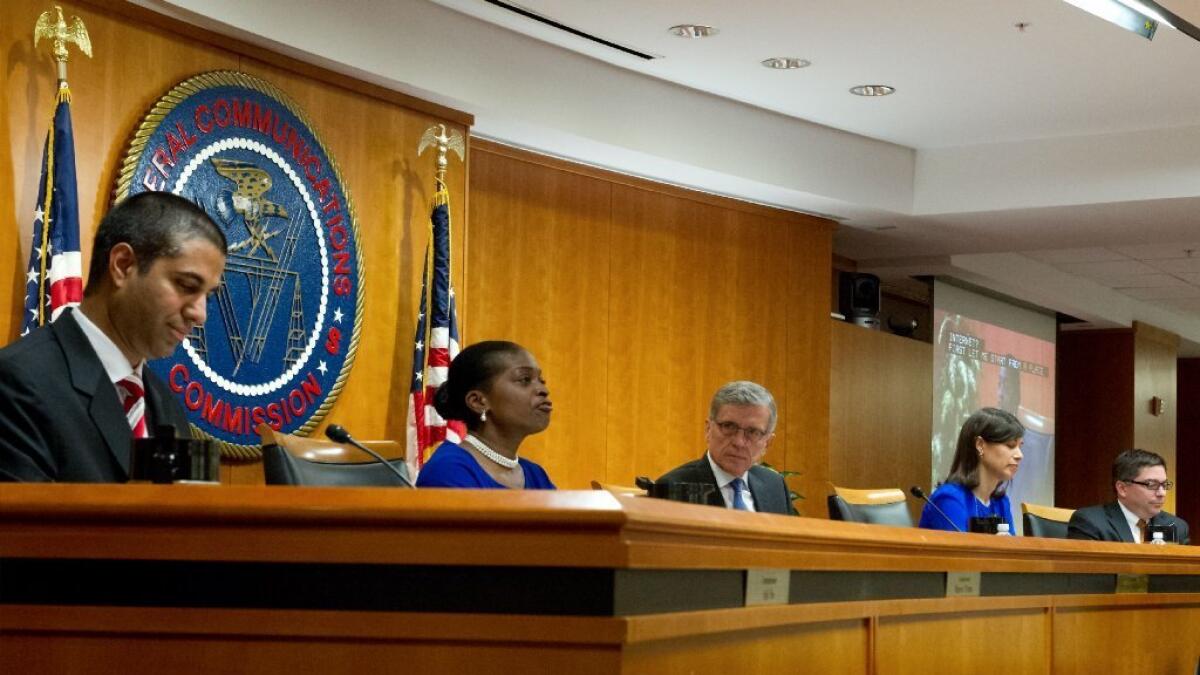Editorial: FCC is wisely taking its time on net neutrality action

The Federal Communications Commission has decided to put off action on net neutrality until 2015, drawing protests from those lobbying for strict regulation of Internet service providers. It’s tempting to argue that the delay gives the commission time to develop a consensus, but that’s a fool’s errand on a topic that’s so polarizing. Instead, the agency needs the extra weeks to build a more defensible case for its rules, given the inevitability that someone will challenge them in court.
Except for those who oppose any form of regulation, there is broad support for barring ISPs from charging Web-based companies for prioritized access to their customers. The disagreement is over how to do so. The federal appeals panel that tossed out the FCC’s last net neutrality rules laid out the central challenge: As long as ISPs are classified as information services, not utilities, the FCC can’t impose one-size-fits-all rules such as a ban on paid prioritization.
Opponents of reclassification have argued that it would somehow embolden foreign governments that want more control over the Internet. But there is an enormous difference between trying to preserve neutrality on the Internet access lines used by one’s citizens, as several countries have done and the European Union has pledged to do, and seeking more power to control content from around the globe, as a number of regimes have done (unsuccessfully so far, thanks in part to U.S. persuasion).
A more realistic concern is that exposing ISPs to intrusive regulation as utilities could deter investment in broadband networks, which would only cause more congestion and slow the innovation that the rules were intended to safeguard. After President Obama called for reclassifying ISPs, AT&T announced that it was putting its network upgrades on hold. Although the company may be posturing, it’s a reminder of how large the stakes are, and how important it is for the FCC not to impose rules that go beyond keeping the Internet’s “last mile” into the home neutral.
The advantage to reclassification is that it provides a clearer legal foundation for stopping ISPs from meddling with their customers’ choice of sites, services and apps. But it makes sense only if the commission shields ISPs from the vast majority of the rules that local phone monopolies and other communications utilities face, such as price controls. Some opponents of reclassification argue that it won’t be so easy to waive those rules, and while it’s absurd to think ISPs would sue the FCC for not regulating them enough, the commission still needs to examine that issue carefully and build a thorough record supporting its decision. If that takes more time, so be it. The point is to preserve the status quo online, and any rules to do so will be worthless if they get overturned on appeal.
Follow the Opinion section on Twitter @latimesopinion
More to Read
A cure for the common opinion
Get thought-provoking perspectives with our weekly newsletter.
You may occasionally receive promotional content from the Los Angeles Times.






